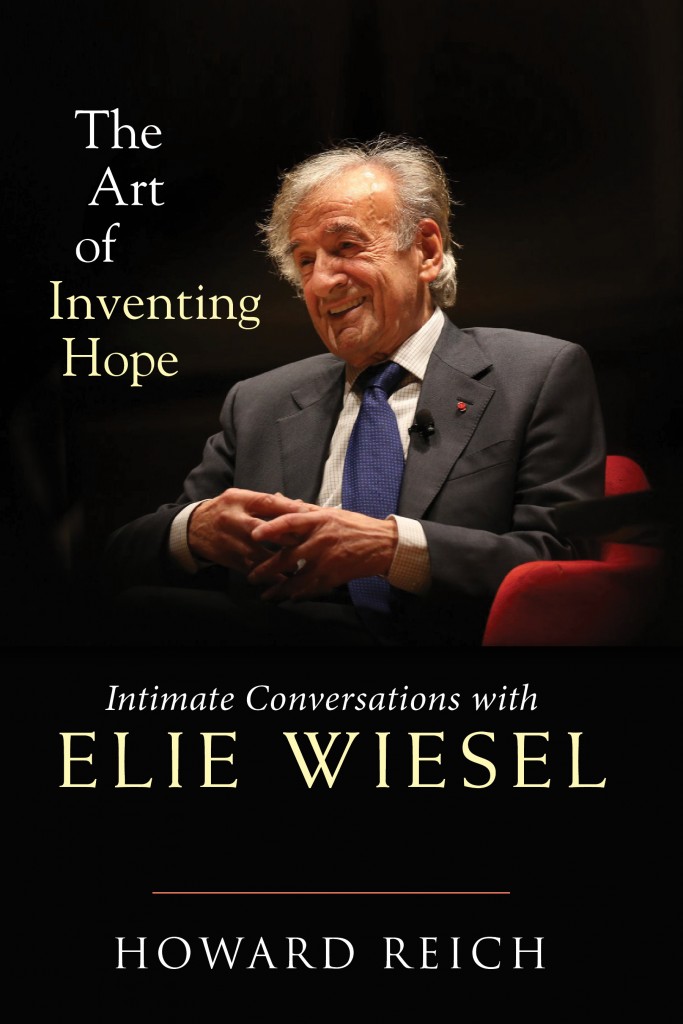In honor of Holocaust Remembrance Day approaching on May 2nd, we interviewed author Howard Reich about his experience writing The Art of Inventing Hope and about his conversations with Elie Wiesel.

The Art of Inventing Hope offers an inside look at unprecedented, in-depth conversations between you and Elie Wiesel. You spoke with Professor Wiesel over the course of the last four years of his life. How did your impression of him when you first met change throughout the years?
Like millions of people around the world, I had regarded Professor Wiesel as a monumental historical figure, revered and untouchable. In person, and through the years, I found him to be an utterly approachable, candid, unassuming person who wore his colossal accomplishments quite lightly. He often was called “the world’s conscience,” but he often told me he wasn’t anyone else’s conscience and didn’t wish to be.
In Prisoner of Her Past, you write about what it was like growing up as the son of Holocaust survivors. What was the biggest difference between writing The Art of Inventing Hope and Prisoner of Her Past?
The Art of Inventing Hope would not have been possible without Prisoner of Her Past. With Prisoner, I discovered my parents’ hitherto untold Holocaust story. With Inventing Hope, I sought to understand the meaning and gravity of what happened, aided by the world’s most revered Holocaust survivor, Elie Wiesel.
How did talking with Professor Wiesel help you process your experience as a son of Holocaust survivors?
Spending so much time with Professor Wiesel was a life-changing experience: I could ask him the questions I never could ask my parents. Questions I didn’t even realize I’d been harboring came to the fore, and Professor Wiesel and I confronted them together. We did not always find answers, but I found the words with which to seek them, thanks to him.
What did you find was the biggest piece of wisdom Professor Wiesel gave you, and why?
If I had to sum that up in one word, it would be “tolerance.” I was struck by Professor Wiesel’s tolerance for those who are different or “other,” or those who sharply disagreed with him. He expressed that in many ways, but most strikingly by how he regarded Holocaust survivors who rejected the faith he still clung to. Professor Wiesel insisted to me, over and over, that we must respect those who reject religion after the Holocaust. To hold that view, after all he had suffered and lost, I consider the epitome of tolerance.
What do you hope readers will take away from reading The Art of Inventing Hope?
That the anti-Semitism that fueled the Holocaust never has gone away; that speaking out against racism and genocide is essential, regardless of how futile it might seem; that to hear a witness is to become a witness; that memories travel through generations and across time; that it’s possible to maintain faith and create hope even in the most dire circumstances.
What was the last book you read, and did you enjoy it?
I recently reread The Best of Jackson Payne by the late Jack Fuller, a friend and mentor of mine, and consider it one of the great jazz novels.
No Comments
No comments yet.